- Home
- Jack Higgins
The Dark Side Of The Island Page 2
The Dark Side Of The Island Read online
Page 2
The Little Ship was on the corner of a narrow alley and when they reached it, he hesitated at the entrance and turned appealingly. "Let me take you somewhere else, mister."
Lomax ruffled the boy's hair with one hand. "Don't look so worried." He grinned. "Shall I let you into a little secret? I've been here before. A long time ago. Before you were even thought of."
He turned from the boy's astonished gaze and went down the stone steps into the cool darkness of The Little Ship.
Just inside the entrance a young man sprawled in a chair against the wall and sang in a low voice, his fingers gently stroking the strings of a bouzouki.
He wore a red and green checked shirt, the sleeves rolled back carefully to display his bulging biceps to better advantage, and his hair curled thickly over the back of his collar.
He made no effort to move out of the way. Lomax stared down at him for a moment, anonymous in his dark glasses, and then stepped carefully over the outstretched legs and moved inside.
The first person he saw was Captain Papademos sitting by himself in a corner drinking red wine. Lomax raised a hand in greeting and Papademos deliberately looked away.
It was then that he became aware of a curious fact. There were six people in the room including Papademos, four of them sitting together and yet no one was talking.
The man behind the bar was small and wiry, his skin tanned the colour of Spanish leather. The right side of his face was disfigured by an ugly scar and the eye was covered by a black patch.
He leaned on the bar holding a newspaper and completely ignored Lomax. The strange thing was that his hands trembled slightly as if he laboured under some terrible strain.
Lomax removed his sunglasses. "Is Alexias Pavlo about?"
"Who wants to know?" the man demanded in a hoarse voice.
"An old friend," Lomax said. "Someone from his past."
Behind him, the bouzouki player struck a final, dramatic chord. Lomax turned slowly and saw that everyone was watching him, even Papademos, and Yanni's white, frightened face peered round the edge of the door.
In the heavy silence, the whole world seemed to stop breathing and then a man stepped through the bead curtain that masked the door at the side of the bar.
In his time, he must have been a giant, but now the white suit hung loosely on his great frame. He moved forward slowly with a pronounced limp, leaning heavily on a walking stick, and the heavy moustache was iron grey.
"Alexias," Lomax said. "Alexias Pavlo."
Pavlo shook his head slowly from side to side as if he couldn't believe the evidence of his own eyes. "It is you," he whispered. "After all these years you've come back. When Papas told me, I thought he was insane. The Germans said you were dead."
The bead curtains parted again and George Papzls moved out. There was sweat on his face and he looked frightened to death.
"It's me, Alexias," Lomax said, holding out his hand. "Hugh Lornax—don't you remember?"
Pavlo ignored the outstretched hand. "I remember you, Englishman." A muscle twitched at the side of his jaw. "How could I forget you? How could anyone on this island forget you?"
Suddenly, his face was suffused with passion. His mouth opened as if he wanted to speak, but the words refused to come and he raised his stick blindly.
Lornax managed to ward the blow off and moved in close, pinning Pavlo's arms to his sides. Behind him, a chair went over with a crash and Yanni screamed a warning from the door.
As he released Pavlo and started to turn, a brawny arm slid around his neck, half-choking him. He tried to raise his arms, but they were seized and he was dragged backwards.
The four men who had been sitting together held him in a vice half-way across the table. Papademos got to his feet and started for the door, but the man who had been playing the bouzouki shook his head gently and the captain sat down again.
The bouzouki player propped his instrument carefully against the wall and came forward. He looked down at Lomax for a moment, his expression perfectly calm, and then slapped him heavily in the face.
Lomax tried to struggle, but it was no use, and Pavlo pushed the bouzouki player out of the way. "No, Dimitri, he is mine. Lift up his head so that I can look at him properly."
Dimitri grabbed Lomax by the hair, pulling him upright and Pavlo looked into his face and nodded. "The years have treated you kindly, Captain Lomax. You look well—very well."
The little man with the scarred face and eye-patch had come from behind the bar and stood beside Pavlo and looked down at Lomax. Suddenly, he leaned forward and spat on him.
Lomax felt the cold slime on his face and anger boiled inside him. "For God's sake, Alexias. What's all this about?"
"It's really quite simple," Pavlo said. "It's about my crippled leg and Nikoli's face here. If you prefer it, there's always Dimitri's father and twenty-three other men and women who died in the concentration camp at Fonchi."
And then it all began to make some kind of crazy sense. "You think I was responsible for that?" Lomax said incredulously.
"You were judged and condemned a long time ago," Pavlo told him. "It only remains for the sentence to be carried out."
He looked at the bouzouki player, his face like stone. "Give me your gutting knife, Dimitri."
Dimitri took a large clasp-knife from his hip pocket and passed it across. Pavlo pressed a button at one end and a six-inch blade, honed like a razor, sprang into view.
Lomax kicked out wildly, panic rising inside him. He made a last desperate effort and managed to tear one arm free. He swung round, dashing his fist into the nearest face, but in a moment, he was pinioned again.
The hand that held the knife trembled a little, but there was cold purpose in Pavlo's eyes. He took one pace forward, the knife coming up, and a voice said from the doorway, "Drop it, Alexias!"
Everyone turned and Lomax felt the grasp on his arms slacken. Standing just inside the door was a police sergeant in shabby sun-bleached khaki uniform, and Yanni peered under his arm.
"Stay out of this, Kytros," Pavlo said.
"I believe I told you to drop the knife," Kytros replied calmly. "I would not like to have to ask you again."
"But you don't understand," Pavlo told him. "This is the Englishman who was here during the war. The one who betrayed us to the Germans."
"So you would murder him now and in cold blood?" Kytros said.
Little Nikoli made an impassioned gesture with both hands. "It is not murder—it is justice."
"We obviously have different points of view." Kytros looked straight at Lomax. "Mr. Lomax, please come with me."
Lomax took a step forward and Dimitri grabbed his arm. "No, he stays here!" he said harshly.
Kytros unbuttoned the flap of his holster and took out his automatic. When he spoke there was iron in his voice. "Mr. Lomax is leaving with me now. I would be obliged, Alexias, if you would not make it necessary for me to shoot one of your friends."
Pavlo's face was contorted in anger and he half turned and drove the blade of the knife into the wooden table in a single violent gesture.
"All right, Kytros. Have it your way, but make sure he's on the boat when it leaves at four o'clock. If he isn't, I can't be responsible for what might happen."
Lomax stumbled past the sergeant and climbed the steps into the bright sunlight. For a moment, reaction set in and he leaned against the wall, his chest heaving as he struggled for breath.
Kytros put a hand on his shoulder. "Are you all right? Did they harm you?"
Lomax shook his head. "I'm getting a little too old to be playing that kind of game, that's all."
"Aren't we all, Mr. Lomax?" Kytros said. "My office is just around the corner. I'd be pleased if you would accompany me there."
As they walked along, Yanni tugged at Lomax's hand anxiously. "I got the sergeant for you, Mr. Lomax. Did I do right?"
Lomax smiled. "You saved my life, son. That's all."
Yanni frowned. "They say you're a bad man, Mr. Lomax."
"What do you think?" Lomax said. The boy smiled suddenly. "You don't look like a bad man to me."
"Thea we're still friends?"
"Sure we are."
They paused outside the police station and Lomax patted him on the head. "I'm going to be busy for a while, Yanni. You go back to the hotel and wait for me."
Yanni turned reluctantly and Lomax added, "It's all right. Sergeant Kytros isn't going to put me in prison."
The boy whistled to his dog and ran away along the waterfront and Lomax followed Kytros up the stone steps.
The sergeant led the way into an office furnished with a desk, several wooden chairs and a startlingly new green filing cabinet,
"The boy seems to have taken quite a fancy to you." He took off his cap and sat behind the desk. "It's a pity you won't be around longer. He could do with an improving influence."
Lomax pulled a chair forward and sat down. "So I'm definitely leaving, am I?"
Kytros spread his hands. "Mr. Lomax, be sensible. That could have been a nasty business back there at The Little Ship and I can't guarantee that it won't happen again. Alexias Pavlo is an important man on Kyros."
"Does that make him God?"
Kytros shook his head. "He doesn't need to be God to arrange for someone to slip a knife under your ribs one dark night."
"The Alexias Pavlo I knew seventeen years ago did his own killing," Lomax said.
Kytros ignored the remark. "Could I see your papers?" Lomax produced them from an inside pocket and the sergeant examined them quickly. "What is the purpose of your visit to the island?"
Lomax shrugged. "I was here during the war. I thought I'd like to see the place again."
"But why Kyros, Mr. Lomax? The war must have taken you to many places."
"It happened to be the first port of call on the way from Athens," Lomax said. "It was as simple as that, I also intended to look up old friends in Crete and Rhodes. If I still have any, that is. After my reception here, I'm beginning to wonder."
"I see," Kytros passed the papers back. "These seem to be perfectly in order."
"What happens now?" Lomax asked.
"I should have thought that was obvious. You must leave on the boat at four o'clock."
"Is that an order?"
Kytros sighed. "Mr. Lomax, I notice that your visa has been franked by the minister himself. This means you have important friends in Athens."
"That's one thing you can count on," Lomax told him grimly.
"You place me in an impossible position," Kytros said. "If I force you to leave I will find myself in trouble in Athens. On the other hand, if you stay, someone will most surely try to kill you and I will again be to blame."
"But I must get to the bottom of this thing." Lomax said. "Surely you can see that? For a start, you can tell me why these people think I betrayed them to the Germans."
"Anything I know, I've heard at second-hand," Kytros said. "I'm from the mainland myself. I've only been here two years."
"Then what do you suggest?"
Kytros examined his wrist-watch. "You have exactly an hour and a quarter until the boat leaves, I would suggest that you go to the Church of St. Katherine and speak with Father John. He was here at the time in question."
Lomax looked at him in astonishment. "Do you mean Father John Mikali? But I met him when I was here during the war and he was at least seventy then."
"A very wonderful old man."
Lomax got to his feet and moved to the door. "Thanks for the advice. I'll see you later."
"On the pier at four o'clock," Kytros told him. "And remember, Mr. Lomax. Time is your enemy."
He pulled a sheaf of papers forward and reached for a pen and Lomax went outside and walked back along the waterfront.
3
Two Candles for St. Katharine
The lights m the little church were very dim and down by the altar the candles flickered and St. Katherine seemed to float out of the darkness bathed in a soft white light.
The smell of incense was overpowering and for a moment he felt a little giddy. It was a long time since he had been in a church and he stretched out a hand and touched the cold roughness of a pillar in the darkness to bring himself back to reality and moved down the aisle.
Father John Mikali knelt in prayer by the altar. His pure, almost childlike face was raised to heaven and in the candlelight the beard gleamed like silver against his dark robes.
Lomax sat on one of the wooden benches and waited and after a while the old priest crossed himself and got to his feet. When he turned and saw Lomax he showed no visible emotion.
Lomax got to his feet slowly. "A long time, Father."
"I was told you were here," Father John said.
Lomax shrugged. "News travels fast in a small town."
The old priest nodded. "Especially bad news."
"You too?" Lomax said bitterly. "Now I know I'm in trouble."
"It is not for me to judge you," Father John said, "but it was foolish of you to return. Once the grass has grown over a grave it is not good to disturb it."
"All I want are the answers to a few questions," Lomax said. "If you of all people won't help me, who will?"
Father John sat down on one of the benches. "First, let me ask you a question. Why have you returned to Kyros after all this time."
Lomax shrugged. "An impulse, I suppose."
But there was more to it than that—much more. He squeezed his hands together and frowned, trying to get it straight in his own mind.
After a while he said slowly, "I think I came here looking for something."
"It would interest me to know what," the old man said.
Lomax shrugged. "I'm not really sure. Myself, perhaps. The man I lost back there in the past so many years ago."
"And you thought to find him here on Kyros?"
"But this was where he existed, Father. Don't you see that? During the past two or three years a strange thing's been happening to me. The events that other man was involved in here in these islands so many years ago seem more real to me than those things which have happened since. More important in every way. Does that make any kind of sense?"
The old priest sighed. "Captain Lomax, for these people that man has been dead for seventeen years. It would have been better if you had not resurrected him."
"All right, Father," Lomax said. "Let's get down to hard facts. The last view I had of Kyros was from the deck of the E-boat which was taking me to Crete after the Germans had captured me. What happened after I left?"
"Everyone who helped you was arrested," Father John said. "Including their immediate relatives. Some were shot in the main square as an example, the rest were sent to a concentration camp in Greece. Few survived the ill-treatment."
"And the people think I was responsible? That I betrayed them?"
"You were the logical person and the fact that the Germans failed to execute you seemed to prove it. After all, they usually shot any British officer they caught who'd been working in the mountains with the Resistance."
"But that's ridiculous," Lomax said.
"You were badly wounded, perhaps even a little delirious. How can you be sure? In such a state, a man does strange things."
"Not a chance," Lomax said stubbornly. "I didn't talk, Father. Believe me."
The old man sighed. "It's painful to have to tell you this, but I can see that I must. Colonel Steiner made no secret of the fact that he had persuaded you to give him the information he needed in exchange for your life."
Lomax feit as if a cold wind had passed over his face. "But that isn't true," he said. "It can't be. I didn't tell Steiner a damn thing."
"Then who did, Captain Lomax? There was no one else. They were very thorough, you know. They even included me."
Lomax looked at him incredulously. "They arrested you!"
Father John smiled gently. "Oh, yes. I too sampled the delights of their concentration camp at Fonchi."
Lomax buried his face in his hands.
"This thing's beginning to seem like a waking nightmare. Did you know that Alexias Pavlo actually tried to kill me a little while back?"
Pain flashed across the old man's face. "So it has started already? And violence breeds violence. This was what I was afraid of."
Lomax got up and paced nervously across the aisle. For a moment he stood there staring into space, a slight frown on his face, and then he turned quickly.
"If I'd really been guilty of this terrible thing do you think I'd have dared show my face here again, even after seventeen years? I know these islands and their people. I spent four years in the mountains with them. They believe in an eye for an eye and they've the longest memories in the world."
"A good point," Father John said, "but it could be argued that the situation here has taken you by surprise. That you were not aware of what took place as a consequence of your action."
Lomax stood looking at him feeling curiously helpless and then weariness flooded through him in a great wave.
He slumped down, his shoulders bowed in defeat. "For God's sake, what's the use?"
The old priest stood up. "Believe me, my son, I harbour no resentment against you, but I fear the evil that your presence here may produce. I think it would be better for all of us if you left on the steamer that brought you here. You still have time."
Lomax nodded. "Perhaps you're right."
Father John murmured a blessing. "I must go now. My presence in the streets may help to prevent any expression of violence when you leave."
He moved away along the aisle and Lomax stayed there on the bench, his head in his hands. He was past caring, his mind numb, gripped by a force he seemed unable to cope with. All the strength was draining out of him and he leaned forward and rested his head against a pillar.
Someone ran in through the entrance of the church and paused and then steps sounded on the stone flags of the aisle.
It was the perfume he first became aware of, strange and somehow alien in that place, like lilac fresh after rain, and it tingled in his nostrils bringing his head up sharply.
A young girl was standing there in the half-darkness, a scarf covering her head peasant-fashion. She was breathing heavily as if she had run a long way and she stood there staring down at him and no word was spoken.

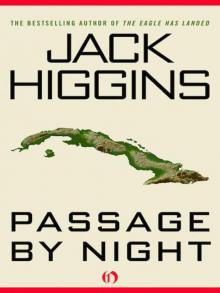 Passage by Night (v5)
Passage by Night (v5)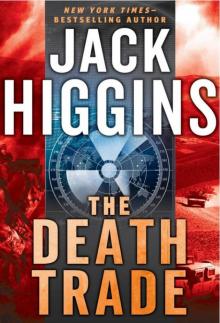 The Death Trade sd-20
The Death Trade sd-20 Cold Harbour
Cold Harbour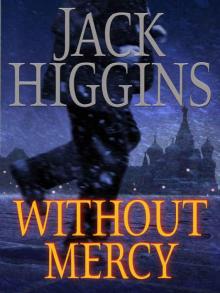 Without Mercy
Without Mercy Solo (Aka the Cretan Lover)(1980)
Solo (Aka the Cretan Lover)(1980) First Strike
First Strike Confessional - Devlin 03 (v5)
Confessional - Devlin 03 (v5)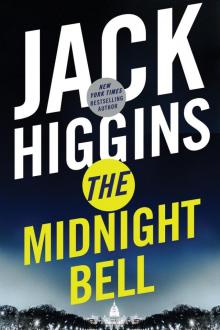 The Midnight Bell
The Midnight Bell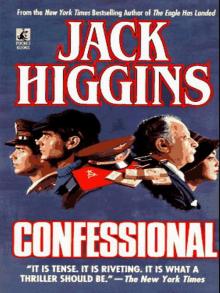 Confessional
Confessional Sad Wind from the Sea (v5)
Sad Wind from the Sea (v5)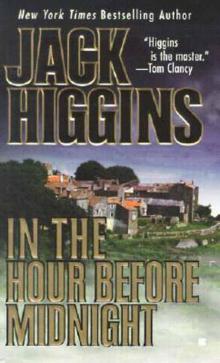 In The Hour Before Midnight aka The Sicilian Heritage
In The Hour Before Midnight aka The Sicilian Heritage Wrath of the Lion
Wrath of the Lion SDillon 20 - The Death Trade
SDillon 20 - The Death Trade the Iron Tiger (1974)
the Iron Tiger (1974)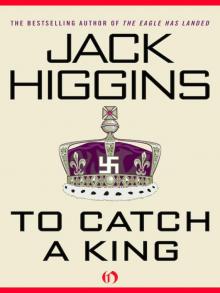 To Catch a King
To Catch a King Bloody Passage (1999)
Bloody Passage (1999) Wrath of the Lion sd-8
Wrath of the Lion sd-8 Sharp Shot
Sharp Shot Pay the Devil (v5)
Pay the Devil (v5) A Devil Is Waiting
A Devil Is Waiting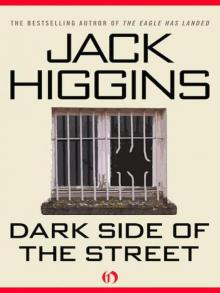 Dark Side of the Street - Simon Vaughn 01 (v5)
Dark Side of the Street - Simon Vaughn 01 (v5)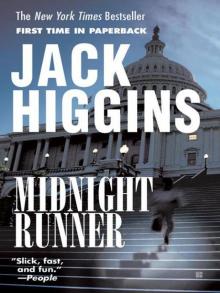 Midnight Runner - Sean Dillon 10
Midnight Runner - Sean Dillon 10 Wrath of God
Wrath of God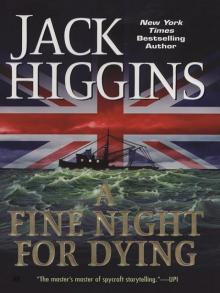 A Fine Night for Dying
A Fine Night for Dying Hell Is Too Crowded v5)
Hell Is Too Crowded v5) the Iron Tiger (v5)
the Iron Tiger (v5) Dark Side of the Street pc-5
Dark Side of the Street pc-5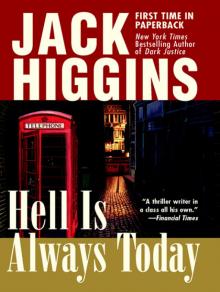 Hell Is Always Today
Hell Is Always Today Eagle Has Landed
Eagle Has Landed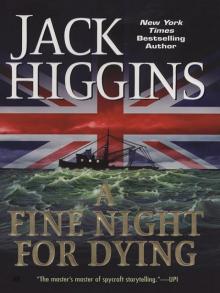 A Fine Night for Dying pc-6
A Fine Night for Dying pc-6 the Last Place God Made (v5)
the Last Place God Made (v5) the Valhalla Exchange (1976)
the Valhalla Exchange (1976) The Eagle Has Flown
The Eagle Has Flown Sure Fire
Sure Fire Pay the Devil (1999)
Pay the Devil (1999) Memoirs of a Dance Hall Romeo
Memoirs of a Dance Hall Romeo![a Prayer for the Dying (1974)[1] Read online](http://i1.bookreadfree.com/i1/04/02/a_prayer_for_the_dying_19741_preview.jpg) a Prayer for the Dying (1974)[1]
a Prayer for the Dying (1974)[1] Comes the Dark Stranger
Comes the Dark Stranger Dark Side Of the Island (v5)
Dark Side Of the Island (v5)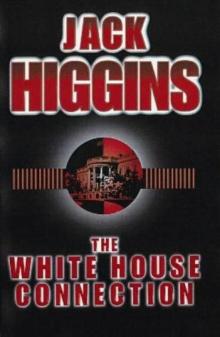 The White House Connection sd-7
The White House Connection sd-7 Dillinger (v5)
Dillinger (v5) Eye of the Storm
Eye of the Storm Eye Of The Storm aka Midnight Man
Eye Of The Storm aka Midnight Man A Darker Place
A Darker Place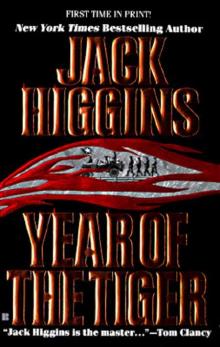 Year Of The Tiger
Year Of The Tiger Death Run
Death Run the Savage Day - Simon Vaughn 02 (v5)
the Savage Day - Simon Vaughn 02 (v5) Bloody Passage (v5)
Bloody Passage (v5) The Bormann Testament
The Bormann Testament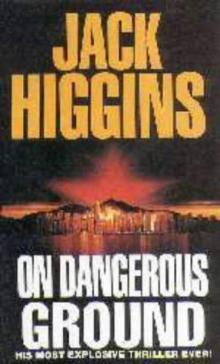 On dangerous ground sd-3
On dangerous ground sd-3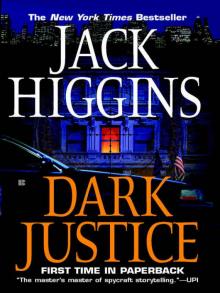 Dark Justice
Dark Justice Sheba
Sheba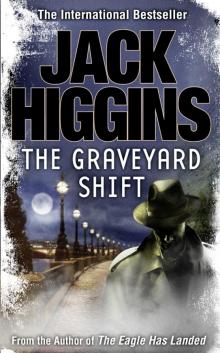 The Graveyard Shift
The Graveyard Shift Exocet (1983)
Exocet (1983) The Wolf at the Door
The Wolf at the Door The wolf at the door sd-17
The wolf at the door sd-17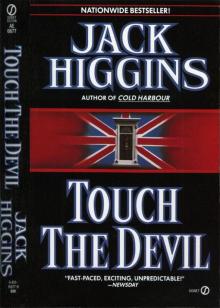 Touch The Devil
Touch The Devil The President’s Daughter
The President’s Daughter A Prayer for the Dying (v5)
A Prayer for the Dying (v5)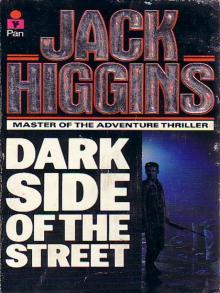 Dark Side Of The Street
Dark Side Of The Street Dillinger (1983)
Dillinger (1983) Midnight Never Comes pc-4
Midnight Never Comes pc-4 Hell Is Too Crowded (1991)
Hell Is Too Crowded (1991)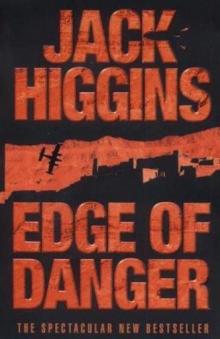 Edge of Danger sd-9
Edge of Danger sd-9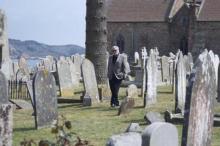 The Thousand Faces of Night (v5)
The Thousand Faces of Night (v5)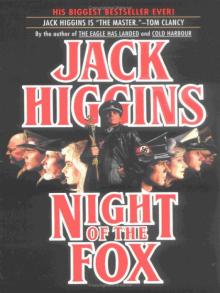 Night Of The Fox
Night Of The Fox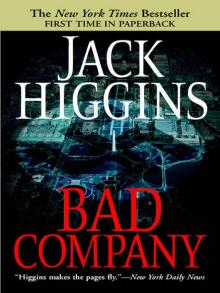 Bad Company
Bad Company The Killing Ground
The Killing Ground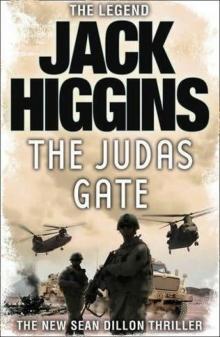 The Judas gate sd-18
The Judas gate sd-18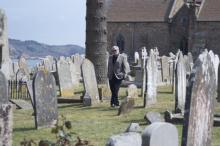 The Thousand Faces of Night (1961)
The Thousand Faces of Night (1961) Solo (Aka the Cretan Lover) (v5)
Solo (Aka the Cretan Lover) (v5)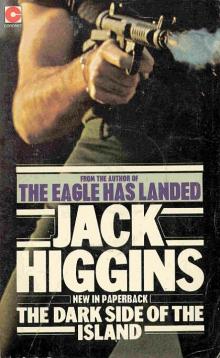 The Dark Side Of The Island
The Dark Side Of The Island A Devil is vaiting sd-19
A Devil is vaiting sd-19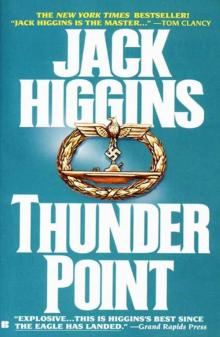 Thunder Point
Thunder Point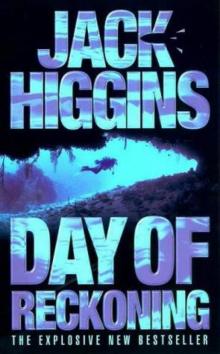 Day of Reckoning sd-8
Day of Reckoning sd-8 the Valhalla Exchange (v5)
the Valhalla Exchange (v5)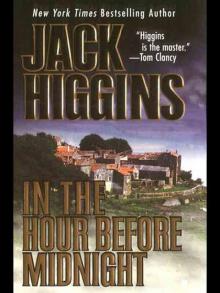 In the Hour Before Midnight
In the Hour Before Midnight The Bormann Testament (The Testament of Caspar Schultz)
The Bormann Testament (The Testament of Caspar Schultz) The Judas Gate
The Judas Gate Luciano's Luck
Luciano's Luck Sad Wind from the Sea (1959)
Sad Wind from the Sea (1959)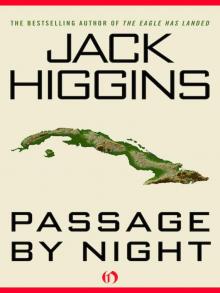 Passage by Night (1987)
Passage by Night (1987) Exocet (v5)
Exocet (v5)